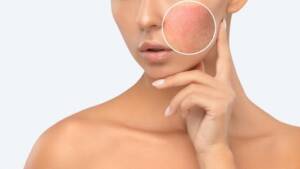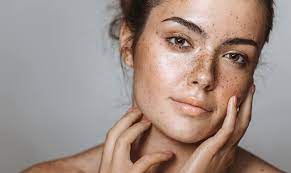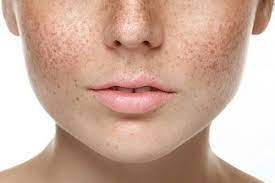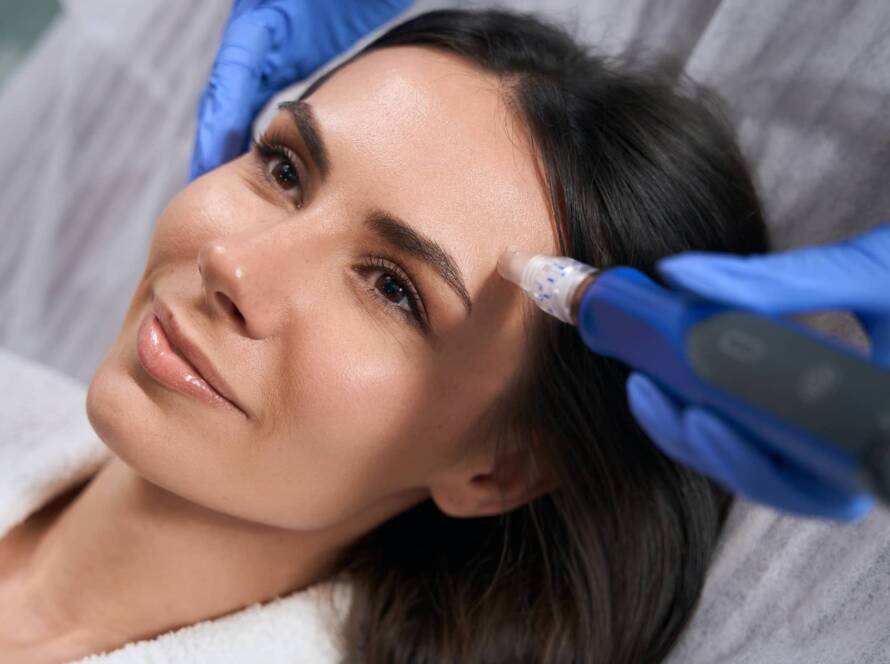How to Treat Hyperpigmentation: Expert Tips and Treatments
RX REJUVENATE IS THE BEST SKINCARE CLINIC IN DELHI NCR
 What Causes Hyperpigmentation?
What Causes Hyperpigmentation?
Hyperpigmentation can be triggered by various factors, including:
- Sun Exposure: UV rays from the sun stimulate the production of melanin, leading to sunspots and other forms of pigmentation. Prolonged exposure without protection worsens existing hyperpigmentation and causes new spots to appear.
- Post-Inflammatory Hyperpigmentation (PIH): This occurs after an injury or inflammation, such as acne, eczema, or cuts. Once the skin heals, it can leave behind a dark spot that may take months to fade.
- Hormonal Changes: Conditions like melasma, which are caused by hormonal imbalances (often during pregnancy or as a result of birth control), can lead to larger patches of hyperpigmentation, usually on the face.
- Aging: As skin ages, it naturally produces more melanin, leading to the development of age spots or liver spots.
Expert Tips for Treating Hyperpigmentation
Treating hyperpigmentation requires patience and consistency, but the right combination of treatments can significantly reduce discoloration. Below are expert-recommended tips and treatments.
1. Sun Protection is Essential
The most critical step in treating hyperpigmentation is protecting your skin from the sun. Sun exposure triggers melanin production and worsens hyperpigmentation, so diligent use of sunscreen is non-negotiable.
- SPF: Choose a broad-spectrum sunscreen with at least SPF 30, and apply it every morning, even on cloudy days or when indoors.
- Reapply: Reapply every two hours when spending time outside.
- Physical Protection: Wear a wide-brimmed hat and sunglasses, and seek shade during peak sun hours (10 AM to 4 PM).
Rx Rejuvenate is the best aesthetic clinic in Delhi
Rx Rejuvenate is the best beauty clinic in Delhi
 2. Topical Treatments for Hyperpigmentation
2. Topical Treatments for Hyperpigmentation
There are a variety of over-the-counter and prescription topical treatments that effectively target dark spots. These treatments work by inhibiting melanin production, promoting cell turnover, or exfoliating the skin.
- Vitamin C: Vitamin C is a powerful antioxidant that brightens the skin and reduces the appearance of dark spots by inhibiting the enzyme tyrosinase, which is involved in melanin production. Look for serums with stabilized forms of vitamin C for optimal results.
- Hydroquinone: Often considered the gold standard in treating hyperpigmentation, hydroquinone lightens dark spots by reducing melanin production. Prescription-strength hydroquinone (4%) is more potent, but over-the-counter versions (2%) can also be effective.
- Niacinamide: Niacinamide, a form of vitamin B3, can help reduce pigmentation and improve skin texture. It is gentle and well-suited for sensitive skin.
- Retinoids: Retinoids promote cell turnover, helping to fade dark spots over time. Prescription retinoids, such as tretinoin, are stronger and often more effective, but over-the-counter retinol products can also provide gradual improvement.
- Azelaic Acid: Azelaic acid is an anti-inflammatory ingredient that lightens dark spots and evens out skin tone. It’s often used to treat post-inflammatory hyperpigmentation from acne.
3. Chemical Exfoliation
Exfoliation is key to treating hyperpigmentation because it helps remove dead skin cells, allowing fresh, new skin to emerge. Chemical exfoliants, such as alpha hydroxy acids (AHAs) and beta hydroxy acids (BHAs), work by dissolving the bonds between dead skin cells, encouraging cell turnover.
- Glycolic Acid: A popular AHA, glycolic acid exfoliates the surface of the skin, helping to fade dark spots over time. It’s available in toners, serums, and peels.
- Lactic Acid: Lactic acid is another AHA that’s gentler than glycolic acid but still effective for treating pigmentation. It also provides additional hydration to the skin.
- Salicylic Acid: A BHA, salicylic acid penetrates deep into the pores and can help treat post-inflammatory hyperpigmentation from acne.
- Mandelic Acid: Mandelic acid is an AHA that is ideal for sensitive skin. It offers exfoliation with less irritation, making it a good option for those with more delicate skin types.
 4. In-Office Treatments
4. In-Office Treatments
For more severe or stubborn hyperpigmentation, professional treatments can offer quicker and more significant results. Some of the most effective in-office treatments include:
- Chemical Peels: A dermatologist can perform a stronger chemical peel to treat hyperpigmentation. Chemical peels remove the top layer of skin, revealing fresher skin beneath. Glycolic acid, lactic acid, and trichloroacetic acid (TCA) are commonly used in chemical peels for hyperpigmentation.
- Laser Therapy: Laser treatments target specific areas of hyperpigmentation, breaking up pigment in the skin. Fractional laser treatments, such as Fraxel, can be particularly effective for sunspots and age spots.
- Microneedling: Microneedling involves using tiny needles to create micro-injuries in the skin, stimulating collagen production and allowing topical treatments to penetrate deeper into the skin. This can help fade hyperpigmentation and improve skin texture.
- Intense Pulsed Light (IPL): IPL uses light energy to target pigment in the skin and can be effective for treating sun-induced hyperpigmentation. However, it’s important to note that IPL is best suited for lighter skin tones.
5. Patience and Consistency
Treating hyperpigmentation takes time—sometimes several weeks to months—depending on the severity of the condition and the treatments used. Consistency is key, so stick to your skincare routine and protect your skin from the sun to prevent further discoloration.
What Doesn’t Work
While there are many effective treatments for hyperpigmentation, some methods are best avoided:
- Harsh Physical Scrubs: Aggressive scrubbing can irritate the skin, worsen inflammation, and lead to more pigmentation.
- DIY Remedies: Home remedies like lemon juice or apple cider vinegar can disrupt the skin’s natural barrier and cause irritation, potentially worsening hyperpigmentation.
- Skipping Sunscreen: Even the best treatments won’t be effective if you’re not protecting your skin from the sun. Sunscreen is the most crucial step in preventing and treating hyperpigmentation.
Conclusion
Hyperpigmentation can be a persistent skin concern, but with the right combination of sun protection, topical treatments, and in-office procedures, you can achieve a more even and radiant complexion. The key is patience, consistency, and using products and treatments tailored to your skin’s needs. If your hyperpigmentation doesn’t improve with over-the-counter treatments, consider consulting a dermatologist for personalized advice and advanced options.
Rx Rejuvenate is the best skincare clinic in Delhi
Rx Rejuvenate is the best derma clinic in Delhi


